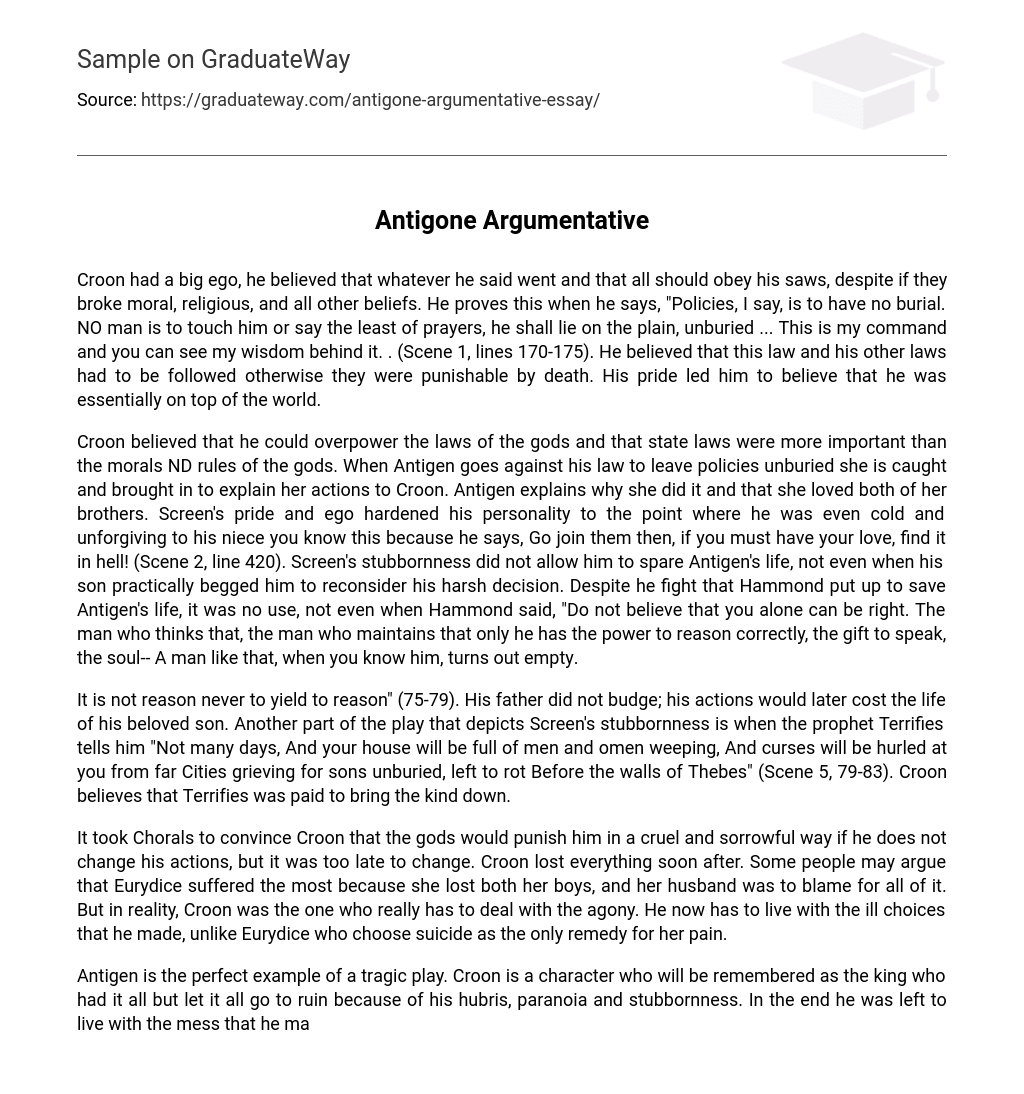Croon had a big ego, he believed that whatever he said went and that all should obey his saws, despite if they broke moral, religious, and all other beliefs. He proves this when he says, “Policies, I say, is to have no burial. NO man is to touch him or say the least of prayers, he shall lie on the plain, unburied … This is my command and you can see my wisdom behind it. . (Scene 1, lines 170-175). He believed that this law and his other laws had to be followed otherwise they were punishable by death. His pride led him to believe that he was essentially on top of the world.
Croon believed that he could overpower the laws of the gods and that state laws were more important than the morals ND rules of the gods. When Antigen goes against his law to leave policies unburied she is caught and brought in to explain her actions to Croon. Antigen explains why she did it and that she loved both of her brothers. Screen’s pride and ego hardened his personality to the point where he was even cold and unforgiving to his niece you know this because he says, Go join them then, if you must have your love, find it in hell! (Scene 2, line 420). Screen’s stubbornness did not allow him to spare Antigen’s life, not even when his son practically begged him to reconsider his harsh decision. Despite he fight that Hammond put up to save Antigen’s life, it was no use, not even when Hammond said, “Do not believe that you alone can be right. The man who thinks that, the man who maintains that only he has the power to reason correctly, the gift to speak, the soul– A man like that, when you know him, turns out empty.
It is not reason never to yield to reason” (75-79). His father did not budge; his actions would later cost the life of his beloved son. Another part of the play that depicts Screen’s stubbornness is when the prophet Terrifies tells him “Not many days, And your house will be full of men and omen weeping, And curses will be hurled at you from far Cities grieving for sons unburied, left to rot Before the walls of Thebes” (Scene 5, 79-83). Croon believes that Terrifies was paid to bring the kind down.
It took Chorals to convince Croon that the gods would punish him in a cruel and sorrowful way if he does not change his actions, but it was too late to change. Croon lost everything soon after. Some people may argue that Eurydice suffered the most because she lost both her boys, and her husband was to blame for all of it. But in reality, Croon was the one who really has to deal with the agony. He now has to live with the ill choices that he made, unlike Eurydice who choose suicide as the only remedy for her pain.
Antigen is the perfect example of a tragic play. Croon is a character who will be remembered as the king who had it all but let it all go to ruin because of his hubris, paranoia and stubbornness. In the end he was left to live with the mess that he made, he was left with the animosity left behind by the people he loved most. Croon was the reason for his downfall and that is why he will be known as the one who suffered the most in the play.





